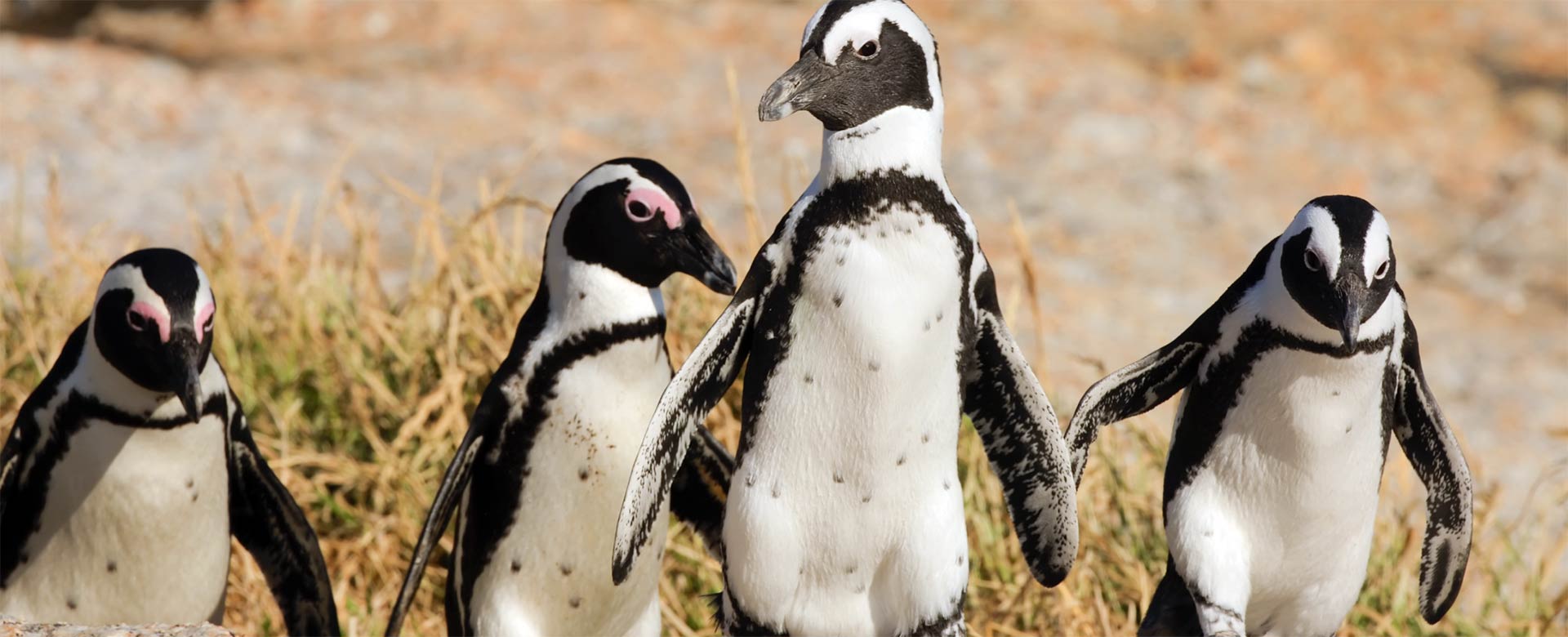Penguins are cute and universally loved by humans. There are 17 species of penguins on earth, all of which exist naturally in the Southern Hemisphere, below the equator. When people think of penguins, most think of cold, arctic climates. However, only 4 species of penguins live in very cold environments, such as Antarctica. Most penguins live in warmer climates. One such species is the African Black-Footed Penguin, (AKA the Jackass penguin, due to their donkey-like vocalizations.) Unfortunately, African Penguins are disappearing from the planet.
Human Impact on African Penguins
Recent estimates say that the numbers of African Black-Footed Penguins have declined at least 90% in the last 120 years. They have dropped from 2 million breeding pairs in the year 1900, to less than 20,000 pairs remaining today. This is due, almost exclusively, to human impact. Issues such as plastic pollution, harvesting of their eggs and guano (for use of fertilizer), commercial fishing, oil pollution, predation by invasive species (such as feral domestic cats), global climate change, general human disturbance, and habitat destruction are some of the threats that this species now faces. If we do not counteract some of these impacts, the African Black-Footed Penguin will surely not be here for long.
Our Responsibility to African Penguins
Because humans are to blame for these issues, we must now collectively take responsibility to reverse some of these problems. Some easy choices we can make in our daily lives are as simple as saying “no” to one-use plastic bags, water bottles, and straws, and to reduce, reuse, and recycle plastic (and other materials) whenever possible. This may not seem to make a huge difference, but if we all do so, the planet (and animals that live here with us) will be far better off.
We can also watch what we eat. Humans consume more seafood than we need, and we often don’t consider other creatures rely on this food source too. One responsible way to counteract the impact we have caused is to pay attention to which seafood is sustainably sourced. We can also eat only what is in season and support restaurants and markets which obtain their seafood responsibly. Responsible, sustainable sourcing means having as little impact on the environment as possible.
What are we doing now?
Thankfully, people are making direct efforts to help the African Black-Footed Penguin populations in South Africa, and they are going on right now. A team of professionals, lead by Kevin Graham of the Dallas Zoo bird department, is working hard at solving at least one problem these birds face; the loss of their nesting materials and safe places to raise their babies. Kevin has designed and distributed unique man-made penguin nests and placed them in the wild African Black-Footed Penguin’s home territory. These birds are moving right in, using these nests as shelters, and they finally have a safe place to get out of the hot sun, and out of the way of predators.
Through these types of efforts, hopefully, we will start to see an increase in their populations, but the work has only just begun. If you would like to help the African Penguin Nest Project directly, more information can be found at www.savingpenguins.org.








